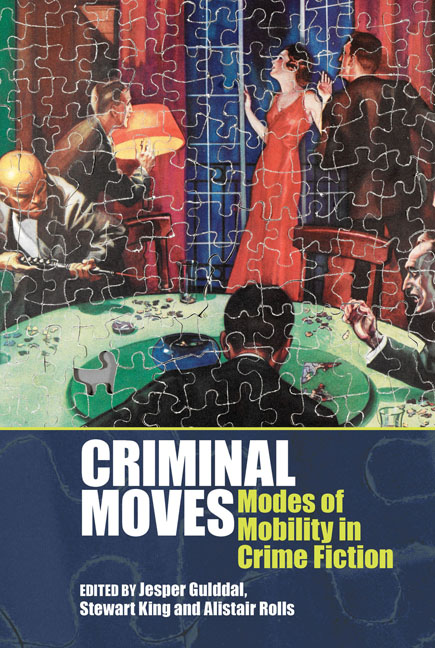3 - Reading Affects in Raymond Chandler's The Big Sleep
Summary
‘I was neat, clean, shaved and sober, and I didn't care who knew it. I was everything the well-dressed private detective ought to be’ (Chandler 1995: 589). Thus begins Philip Marlowe's first book-length investigation in Raymond Chandler's The Big Sleep (1939). The book's plot concerns a case of blackmail that changes into one of a sleazy porn business and then into multiple murders revolving around a missing man until all of these crimes are resolved in the end. The fast-paced events place Marlowe in life-threatening situations, thereby creating suspense as the dominant narrative interest. Dennis Porter characterizes detective narratives such as this as ‘machine[s] for producing thrills’, thanks to the careful calculation of their effects on readers (1981: 108). Readers go through states of curiosity, anxiety, and fear, until they reach a climax with a stunning twist. Porter depicts readers as pleasure-seekers who purposefully read to feel something. By immersing themselves in the recounted events, they become emotionally invested. They want to be moved so that they can experience the effects in their bodies. Emotions cause physiological changes: for example, curiosity sharpens readers’ senses, whereas suspense makes their palms sweat. Reading detective fiction is comparable to a roller coaster ride, in which readers start from a position of safety, go through ups and downs, finally to be returned back to safety. According to Porter, readers crave the repetition of this experience (1981: 108). Martin Priestman claims that what strengthens such emotional reading is the genre's rejection of in-depth and symbolic explanations of its actions and any further interpretation of its themes than the detective's (1990: 50–51).
In spite of the current scholarly interest in literature and the emotions, research has been content to repeat the view that stock genres evoke stock emotions (Robinson 2005). It is useful to contrast this assertion with the ending of The Big Sleep. Although at first Marlowe brags about being ‘everything’ an investigator ought to be, the case closes on an altogether different note: ‘I stopped at a bar and had a couple of double Scotches. They didn't do me any good. All they did was make me think of Silver-Wig, and I never saw her again’ (Chandler 1995: 764). The investigation has changed the detective: brashness has turned into regret and resignation.
- Type
- Chapter
- Information
- Criminal MovesModes of Mobility in Crime Fiction, pp. 60 - 76Publisher: Liverpool University PressPrint publication year: 2019



